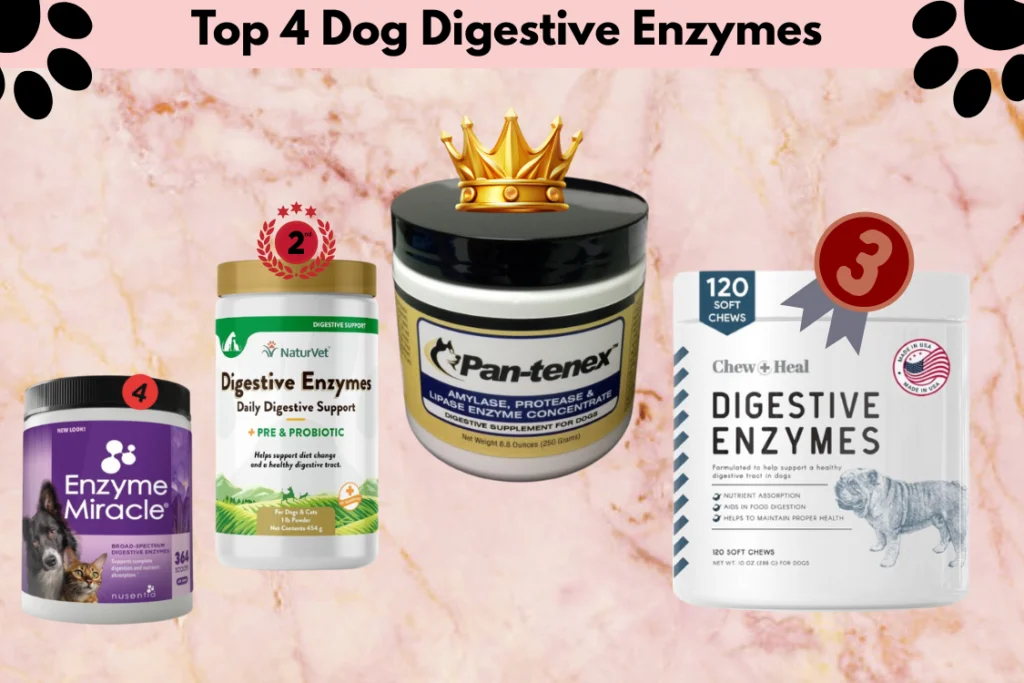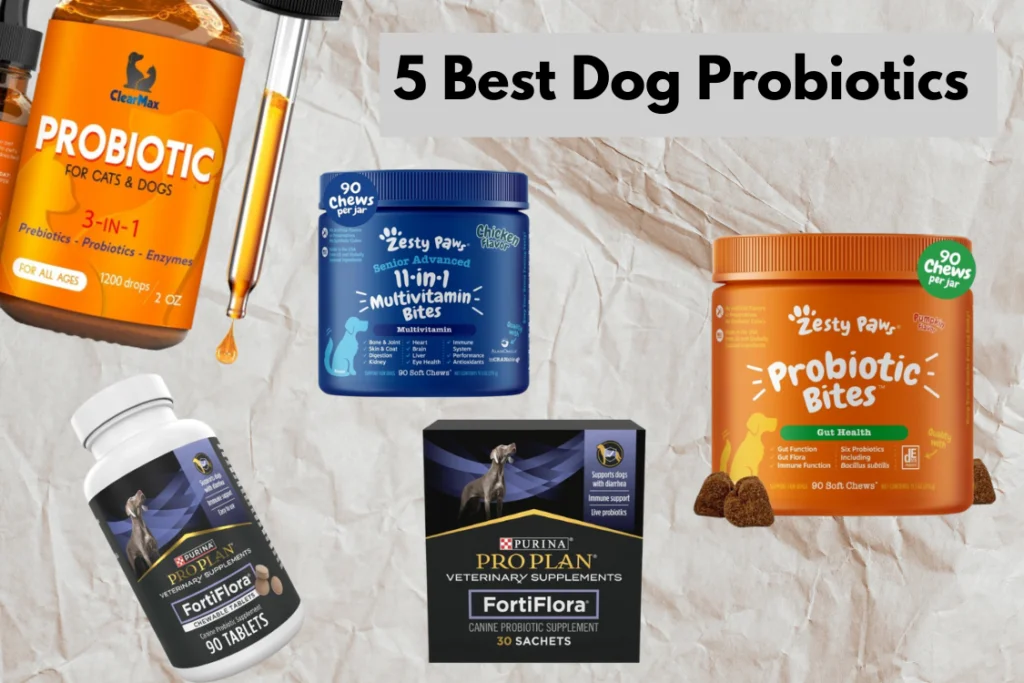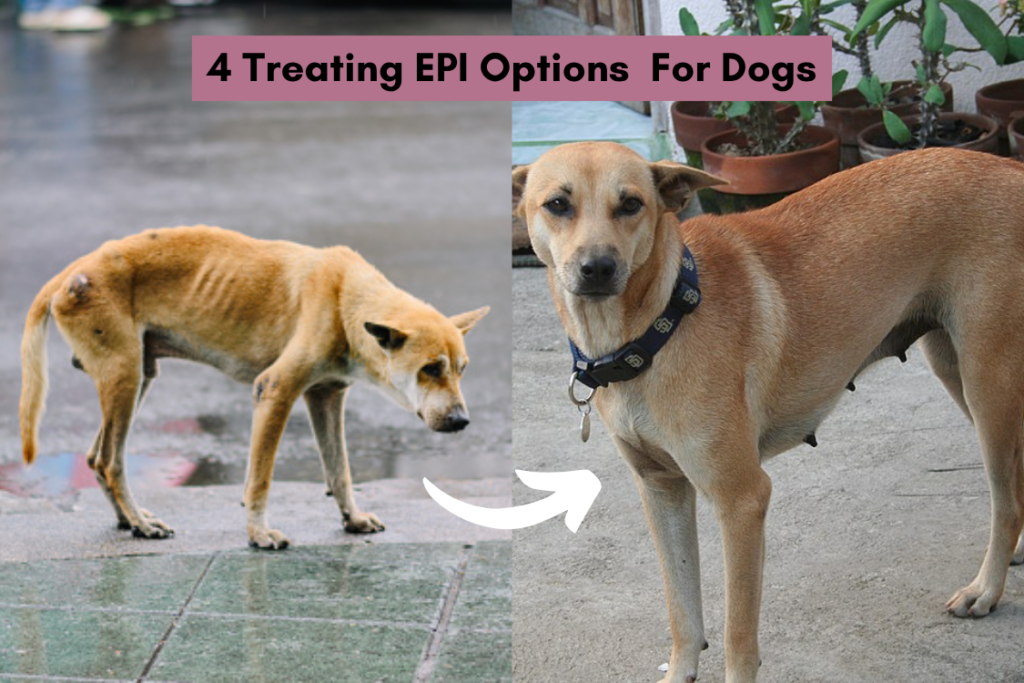Exocrine Pancreatic Insufficiency (EPI) in dogs can be a life-altering condition, but with the right treatment plan, dogs with EPI can live healthy and active lives. EPI occurs when the pancreas doesn’t produce enough digestive enzymes to break down food, leading to malnutrition, weight loss, and other digestive issues. Thankfully, with the help of a veterinarian and proper care, managing EPI is entirely possible.
In this article, we will explore the treatment options available for dogs suffering from EPI, the importance of proper nutrition, and how regular vet visits play a crucial role in managing this chronic condition.
What is EPI and Why Treatment is Crucial

Exocrine Pancreatic Insufficiency happens when the pancreas is unable to produce enough digestive enzymes, like amylase, lipase, and protease. These enzymes are essential for breaking down fats, proteins, and carbohydrates in the digestive process. Without them, dogs are unable to absorb the necessary nutrients from their food, which can lead to malnutrition, diarrhea, weight loss, and a general decline in health.
Early and effective treatment is vital to prevent further complications and help your dog live a comfortable life despite the condition. If you suspect your dog has EPI, it’s important to get a diagnosis from your vet as soon as possible.
1.Enzyme Supplementation: The Core of EPI Treatment

The cornerstone of EPI treatment is enzyme supplementation. Since the pancreas cannot produce adequate enzymes, the dog must receive enzyme replacements through their food. These enzymes help break down nutrients in the food so that the body can absorb them properly.
Types of Enzyme Supplements:
- Powdered Enzyme Supplements: These are the most common form of enzyme therapy. These powders are sprinkled on your dog’s food at every meal. Some popular enzyme brands include Pan-tenex, NaturVet….. These powders contain a blend of enzymes, such as lipase, protease, and amylase, to aid digestion.
- Enteric-Coated Enzymes: These are enzyme supplements that are specifically designed to pass through the stomach without breaking down prematurely. Enteric-coated enzymes are ideal for dogs that may have sensitive stomachs or need extra protection for enzyme effectiveness.
- Prescription Enzyme Supplements: In some cases, your veterinarian may recommend prescription enzyme supplements. These are typically more concentrated and may be needed for severe cases of EPI.
How to Use Enzyme Supplements: Administer the enzyme powder or capsule by mixing it with your dog’s food. It’s important to follow the dosage guidelines provided by your veterinarian based on your dog’s size, severity of EPI, and other health conditions. Over time, you will notice improvements in your dog’s appetite, weight, and stool quality as their body begins to absorb nutrients more effectively.
2.Dietary Changes for Dogs with EPI

Alongside enzyme supplementation, dietary changes are an essential part of managing EPI. Dogs with EPI require a high-quality, easily digestible diet that is rich in protein and low in fat. Here are some tips for choosing the right high-quality food for a dog with EPI:
- Easily Digestible Protein: Look for dog foods that contain easily digestible protein sources such as chicken, lamb, or fish. These proteins are easier for dogs with EPI to break down and absorb.
- Low-Fat Diet: Dogs with EPI may struggle with high-fat foods, so it’s important to choose a low-fat formula to minimize digestive stress. Avoid fatty treats and foods with high fat content.
- Frequent, Small Meals: Dividing your dog’s daily food intake into smaller, more frequent meals will help prevent overloading their digestive system. This strategy ensures better digestion and nutrient absorption.
- Limited Ingredient Diets: Some dogs with EPI may develop food sensitivities or allergies. A limited ingredient diet foods, free of common allergens like grains or soy, may help alleviate digestive issues and improve overall health.
3.Probiotics for Gut Health

In addition to enzymes and diet, probiotics can be incredibly beneficial for dogs with EPI. Probiotics are live beneficial bacteria that support a healthy gut flora, which plays a critical role in digestion. Since EPI can often disrupt the balance of gut bacteria, introducing probiotics into your dog’s diet helps restore this balance, improve digestion, and support the immune system.
Probiotic supplements are widely available, and many enzyme supplements include probiotics as part of the formula. You can also consider standalone probiotic supplements if needed.
4.Regular Vet Checkups and Monitoring

Even with the right treatment plan, managing EPI in dogs requires regular veterinary visits. Your vet will need to monitor your dog’s progress, adjust enzyme doses, and evaluate overall health. Routine blood tests and stool analyses can help track your dog’s nutrient absorption and ensure that the current treatment is effective.
Over time, your dog’s body may adjust to the enzyme supplementation, and your veterinarian may suggest gradual changes to improve their digestive health further. It’s also important to address any secondary health issues that may arise as a result of EPI, such as bacterial overgrowth or intestinal infections.
Managing EPI Long-Term

Managing EPI is a long-term commitment, but with consistent care and attention, many dogs can live a normal life. Here are a few long-term management strategies:
- Dietary consistency: Stick to a consistent diet, avoiding sudden changes that could upset your dog’s digestive system.
- Exercise: Light exercise is important for your dog’s overall health, but be mindful not to overexert them, especially if they are still adjusting to their new diet and supplement regimen.
- Monitor weight and stool: Regularly monitor your dog’s weight and stool consistency. This will help you gauge how well the treatment is working and whether any adjustments are needed.
When to Seek Further Treatment

If your dog shows signs of worsening symptoms or doesn’t respond to treatment, it’s important to consult your vet. This may include further testing or additional treatments for complications such as bacterial overgrowth or malabsorption.
In some cases, more aggressive interventions may be necessary, such as antibiotics or adjustments to the enzyme regimen. While EPI is a lifelong condition, with the right management and EPI treatments, your dog can live a happy, healthy life.
Helping Your Dog Thrive with EPI

Exocrine Pancreatic Insufficiency can be overwhelming for both you and your dog, but with the right treatment approach, your dog can lead a full and active life. Enzyme supplementation, dietary changes, probiotics, and regular vet checkups are all essential components of managing this condition. By staying proactive in your dog’s care, you’ll give them the best chance at a healthy, comfortable future.
Remember, every dog is different, and treatments should be tailored to meet their specific needs. With time, patience, and the right care, your dog can overcome the challenges of EPI and enjoy many more years by your side.



